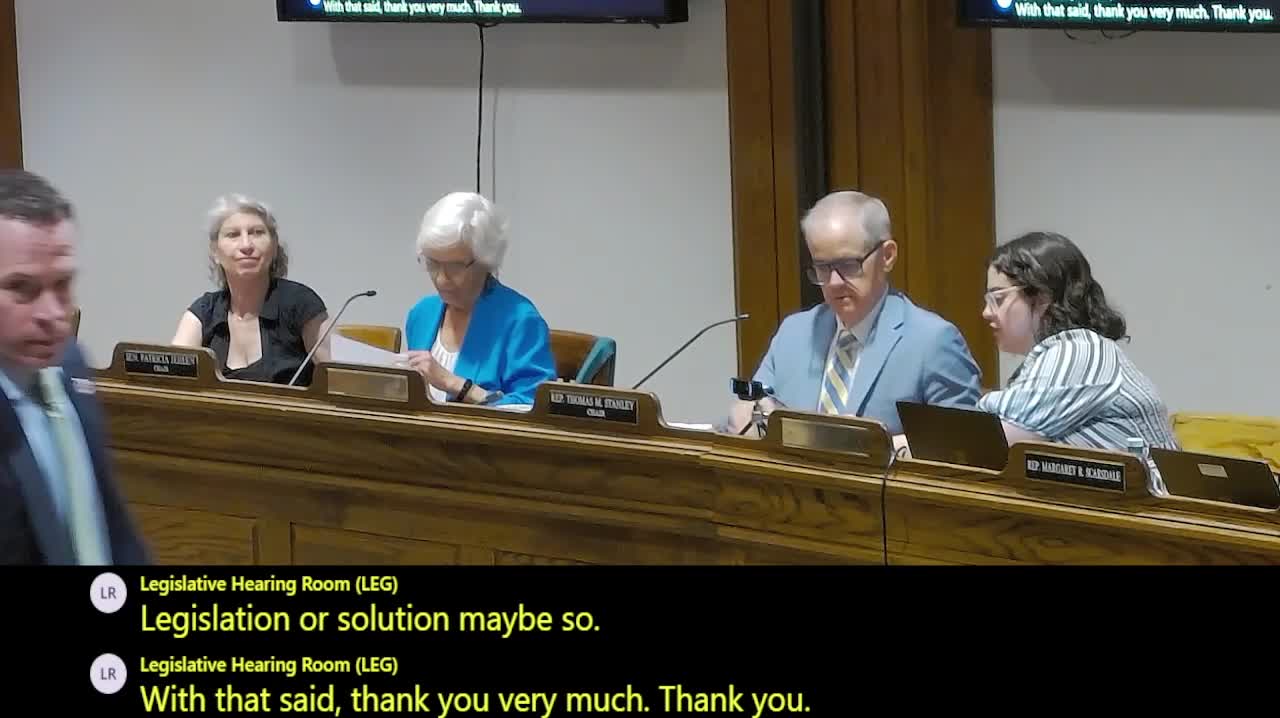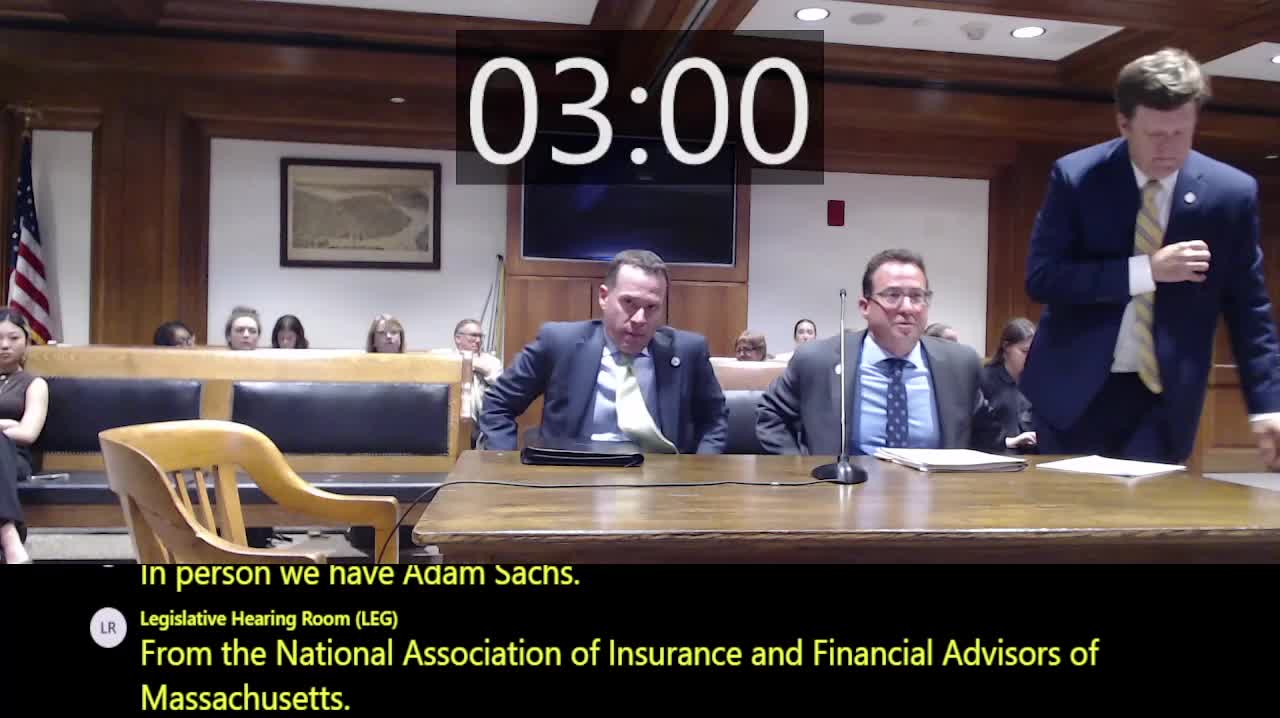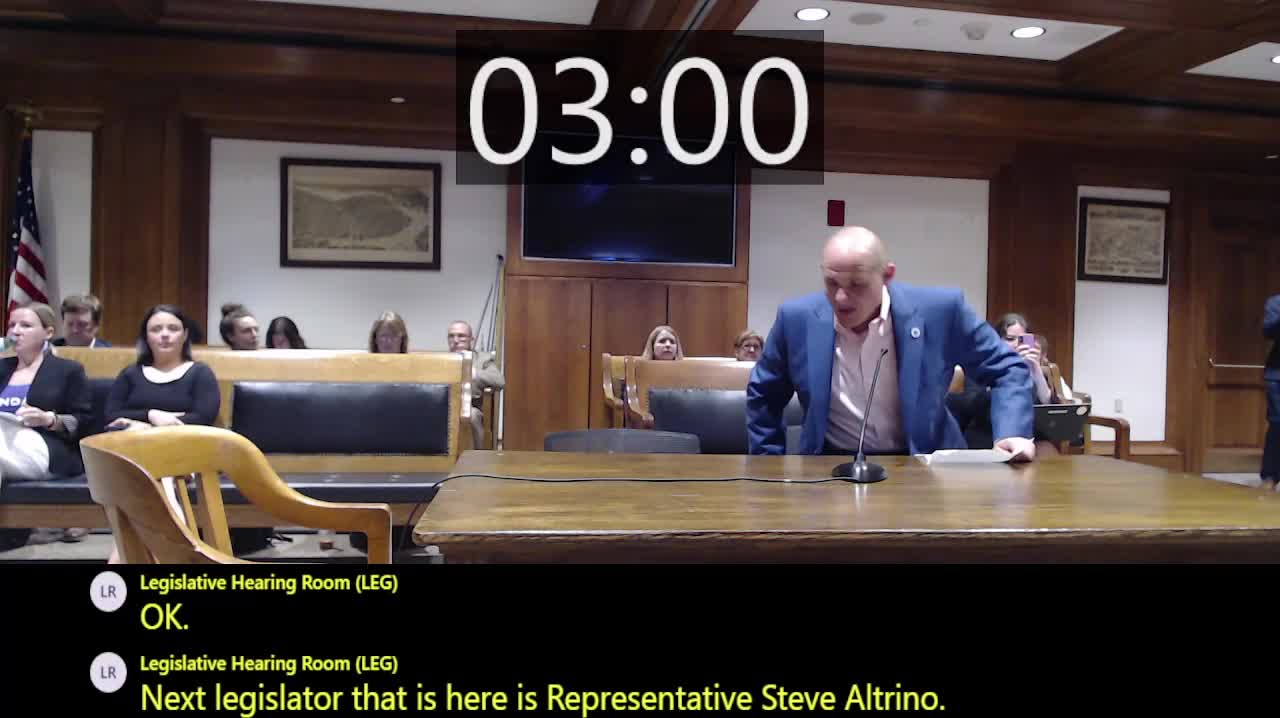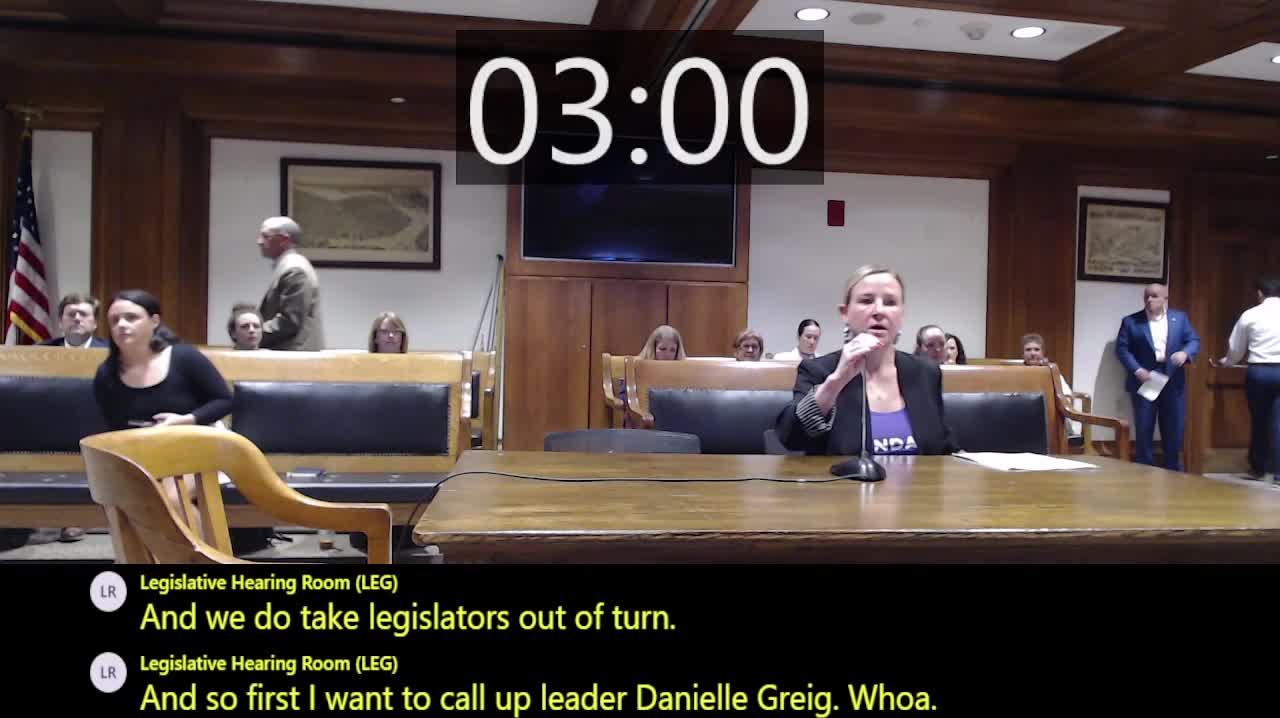Article not found
This article is no longer available. But don't worry—we've gathered other articles that discuss the same topic.

Advocates ask committee to close oversight gap for elders in custodial and nontraditional settings

Providers, financial advisers back special commission to study long‑term care financing options

Rep. Altrino urges creation of independent Office of Older Adult Advocate to coordinate services

